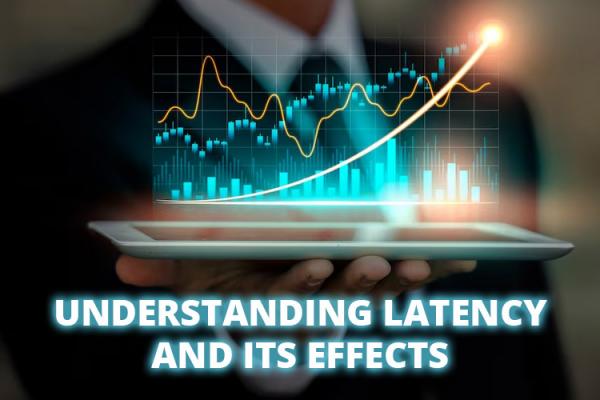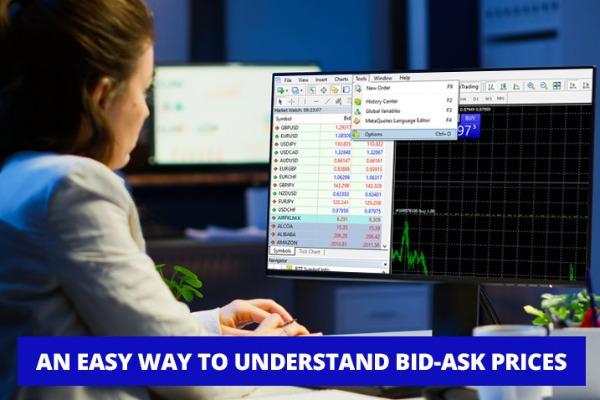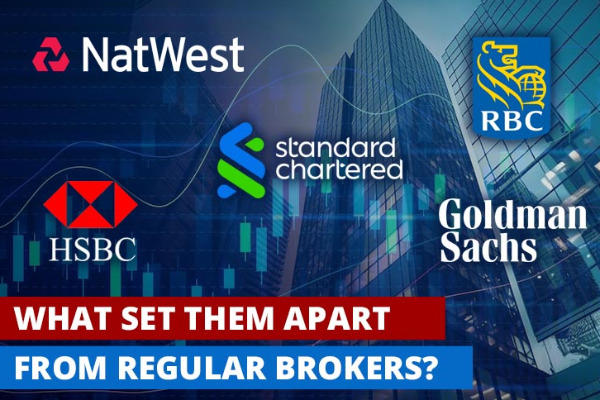The most common reason behind a trader's downfall is the margin call. Let's go in-depth about what is margin call, how far it can affect trading, and what best ways to avoid it.
While it is true that forex trading can bring food to your table or even a new car to your garage, it is only achievable if you tread carefully and plan meticulously. But a margin call is the primary culprit behind a trader's failure to attain that success.
What is Margin Call?
Opening a position, whether sell or buy, requires a certain amount of money. To open a standard-sized lot, for example, a trader requires $100,000, that money is what we call margin. Now, margin call is a warning that shows up when the equity on the trading account falls below the margin requirement to open a position. It warns a trader that the floating loss is leading to unfavorable conditions.
If said floating loss keeps going and the disparity between the account's equity and margin requirement worsens, then the broker will close some of the positions until the margin requirement is fulfilled. Such action is known as stop out.
Many people might have misunderstood the system as a fraud. They think the broker is stealing their money while they are trying to prevent the complete loss of capital, and more importantly, a negative balance.
That train of thought comes from the lack of understanding of forex trading. Many people still see forex trading as a shortcut toward financial independence, so they run headfirst without giving it a second thought. Little did they know how steep the learning curve on forex trading is.
Forex Broker's Policies on Margin Call
Many brokers nowadays apply strict policies regarding margin call and stop out levels. Some of them even set the level of stop out and margin call at 100%. What does it mean?
If your broker specifies that the margin call level is 100%, that means the broker will warn you if your equity is on par with your margin requirement. So a trader with 1:1000 leverage who buys 1 lot (100,000 units) on EUR/USD at 1.35000 would require a margin of:
(1.35000 x 100,000) / 1000 = $135
If his current equity is $7,000, he can only sustain a loss up to $6,865 and have $135 left of his account before his broker sends out a margin call warning. But that position may not be abruptly closed if it has not reached a stop out level at the broker he is working with.
Some brokers set the stop out at the same level as the margin call, while others may set it at 20% of the margin requirement. A trader might think that a low level of stop out is good as it provides more space to maneuver in, but in truth, a high level of stop out means saving more equity. On the other hand, there are some broker that offering a free margin.
How to Avoid Margin Call
Here are a few useful tips that might help you avoid margin calls:
Close the Deal
If the floating loss is almost equal to the margin, it would be better to close the deal. The loss you suffer will not be as bad as when you let the stop do it for you.
This is a solution often recommended by brokers, but you should choose only if you are certain the trend will not change. Before you add more funds to prevent a margin call or even a stop out, ask yourself: what if the price is still going in the same direction?
See Also:
Choose Your Leverage Wisely
Retail traders with relatively small capital would have to rely on leverage compared to larger banks. It can help them in a good way, earn big profits using small capital. Despite all the benefits, this leverage might harm them as it often causes traders to overtrade, trading with too many lots or other downsides that draw margin calls even faster.
Therefore, when opening an account to start a career in forex trading, choose your leverage wisely. Several brokers offer high leverage, such as IC Markets, FX Open, Admiral, etc. While it's okay to use them, make sure to be careful.
Set a Good Money Management
Good money management can help you avoid margin calls. Generally, using no more than 2% of your equity per trade can keep you away from margin calls. For example, if you have $7,000, you should only use $140 in a single position.
By doing so, you will have at least 50% equity remaining even if you lose 25 positions in a row, which is unlikely to happen unless you are overtrading or opening a position without considering it.
The MetaTrader 4 platform can set the alarm when you have reached a certain threshold before the actual margin call occurs. Other platforms, such as AGEA's Streamster, may not show your margin level, but you still can view your free margin, also known as Available Margin or Usable Margin.
It may seem trivial, but many newbie traders do not know about this or ignore this. They may not realize it until their position is abruptly closed, even though they have just opened it. They think their broker is messing around while they forgot to check their margin availability.
Do Not Open a Position Carelessly
A prominent trader, Ross Cameron, advises traders not to enter the market without 99% certainty. Thus, any trader should concoct a well-thought-out plan and check their margin before opening a position.
Make Use of Stop Loss
When it comes to Stop Loss, don't just picture it in your head. You should apply them strictly to prevent greater loss caused by margin calls and stop outs. The price may reach your Stop Loss and bounce back but there is also a possibility that the price keeps going against your trade. Aside from Stop Loss, you can also utilize the Trailing Stop to secure some profits from a floating position.
In addition, you need to know that many brokers apply higher margin requirements during the weekend, which means the margin call level is also on the rise. For example, if the margin requirement during the weekday is 1%, then the broker may change it to 2% during the weekend.
Apart from weekends, changes in margin also occur before some impactful events such as the US Presidential Election and other potentially market-moving occasions. You must keep up with your broker regarding margin requirements so you can adjust your money management plan accordingly.
Some people think margin call is a threat, when all it does is protect your equity from being completely drained out. Having small equity left is always better than having none at all. To support that notion, it may be beneficial to set your money management properly using a money management calculator.

 Dedicated FREE FOREX VPS
Dedicated FREE FOREX VPS Free FOREX Virtual Private Server
Free FOREX Virtual Private Server MT4 Demo Contest, Get $500
MT4 Demo Contest, Get $500 Sign Up for an Account, Claim 60% Deposit Bonus
Sign Up for an Account, Claim 60% Deposit Bonus Free MT4/MT5 VPS 2024
Free MT4/MT5 VPS 2024 Send E-mail and Get Free Merchandise
Send E-mail and Get Free Merchandise $1K Refer a Friend Bonus for Pepperstone Pro clients
$1K Refer a Friend Bonus for Pepperstone Pro clients Maximize Your Earnings with 100% Deposit bonus
Maximize Your Earnings with 100% Deposit bonus Trade to Win, $5,000 Monthly Demo Contest
Trade to Win, $5,000 Monthly Demo Contest Claim 30% + 15% Deposit Bonus from LiteFinance
Claim 30% + 15% Deposit Bonus from LiteFinance













2 Comments
Gordon
Feb 28 2024
I'm new to this and I'm curious about the distinction between a stop out and a margin call. The article mentions a warning in trading when our funds reach a certain level, and if we surpass the margin call threshold, it could result in a stop out. However, in my broker's platform, hitting the margin call automatically closes all my trades. The article also emphasizes the importance of implementing Stop Loss measures diligently to mitigate losses from margin calls and stop outs. I'm also interested in understanding the disparity between Stop Loss and stop out. Appreciate your insights!
Justin
Mar 2 2024
Alright, so here's the lowdown on margin calls and stop outs:
Margin Call: Picture this - you're trading, and suddenly your account balance dips below a certain level required to keep your positions open. Boom! That's a margin call. Your broker gives you a heads-up, asking you to add more cash to your account to cover the shortfall. If you don't pony up, they might start closing out some of your trades to minimize risk.
Stop Out: Now, imagine your account balance keeps tanking, and it hits a level even lower than what's needed for a margin call. That's when the stop out kicks in. Your broker steps in and says, "Enough is enough!" They automatically shut down your trades to prevent your account from going into the red.
In a nutshell, a margin call gives you a chance to fix things by adding more funds, while a stop out is like a safety net that kicks in when things get really dicey to prevent your account from taking a nosedive into debt.